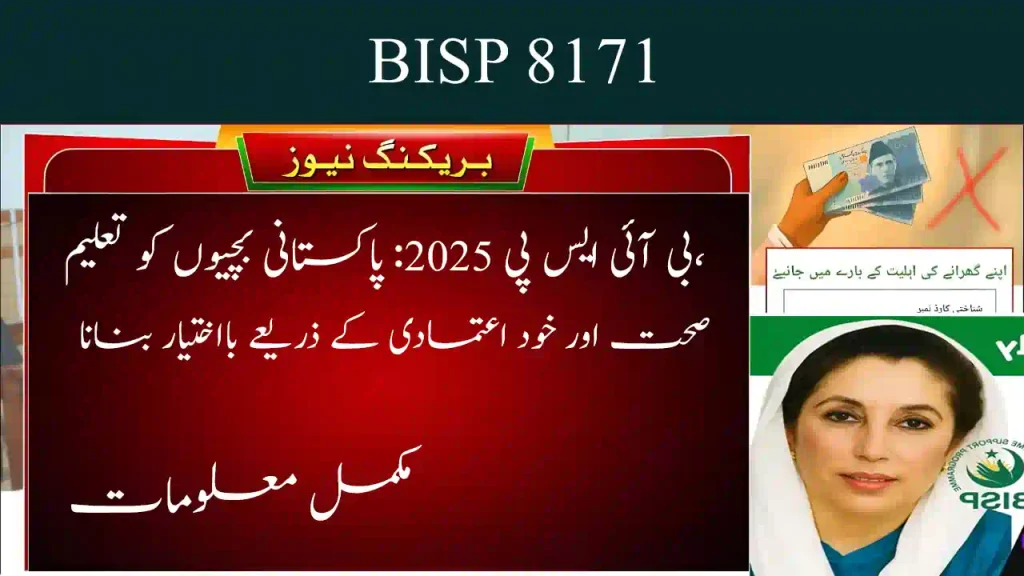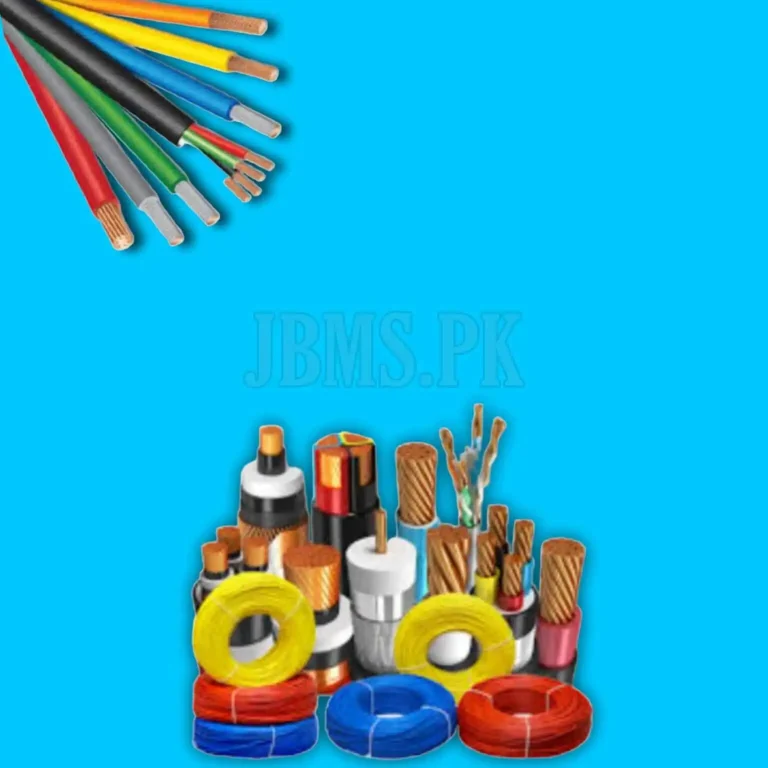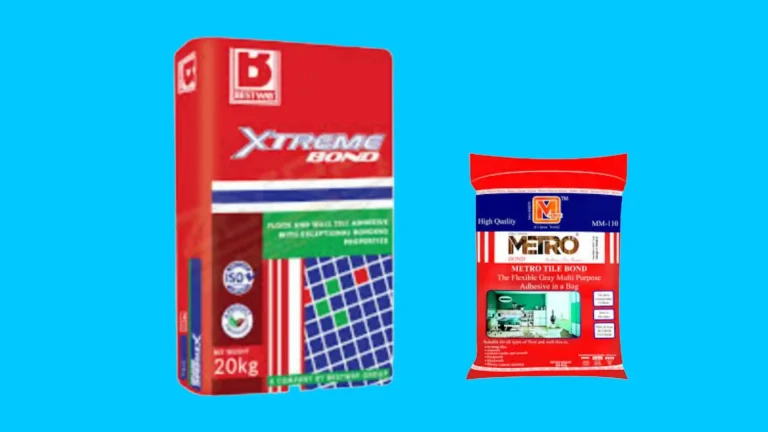BISP 2025: Empowering Pakistani Girls Through Education, Health, and Confidence

Every girl in Pakistan deserves a chance to study, stay healthy, and grow confident. But for many families, poverty creates barriers. Some girls leave school early to help at home, while others struggle with malnutrition or lack of access to health care.
The Benazir Income Support Programme (BISP) has introduced initiatives that directly address these challenges. These programs give daughters the tools they need to succeed:
- Benazir Taleemi Wazaif Program – educational stipends to keep children in school.
- Benazir Nashonuma Program – nutritional and health support for mothers and infants.
- Benazir Adolescent Girls Program – empowering teenage girls through health, education, and confidence-building.
Together, these programs aim to break the cycle of poverty and ensure that girls can grow into independent, capable women.
BISP’s Vision for Women and Girls
BISP is not just a cash support program — it’s a platform for social transformation. By focusing on women and girls, BISP addresses multiple challenges at once:
- Poverty and financial instability.
- Low school enrollment and high dropout rates among girls.
- Malnutrition, anemia, and poor maternal health.
- Lack of confidence and empowerment among teenage girls.
Through targeted programs, BISP creates opportunities for education, nutrition, and empowerment, helping families to invest in the future of their daughters.
Benazir Taleemi Wazaif: Keeping Children in School
The Importance of Education
Education is the foundation of a better future. Yet, in many parts of Pakistan, financial constraints force children to leave school, and girls are often the first to be affected. Families may struggle to buy uniforms, books, or pay for transport, and without support, children’s futures are limited.
The Benazir Taleemi Wazaif Program solves this problem by providing quarterly cash stipends to children whose families are BISP beneficiaries. The stipend covers essential school costs and encourages parents to keep their children enrolled.
Eligibility and Requirements
Families can apply if:
- The mother or guardian is a registered BISP Kafalat beneficiary.
- The child is enrolled in a recognized school.
- The child maintains minimum attendance (typically around 70%).
- The family falls below the poverty threshold set by BISP.
Age Criteria
- Primary: 4–12 years
- Secondary: 8–18 years
- Higher Secondary: 13–22 years
Stipend Amount
- Primary school girls: Rs. 2,500 per quarter
- Primary school boys: Rs. 2,000 per quarter
- Secondary school girls: Rs. 3,500 per quarter
- Secondary school boys: Rs. 3,000 per quarter
- Higher secondary girls: Rs. 4,500 per quarter
- Higher secondary boys: Rs. 4,000 per quarter
Girls receive slightly higher support to promote gender equality and encourage families to educate their daughters.
Registration Process
- Visit your local BISP office.
- Bring your CNIC and your child’s B-Form.
- Provide a school admission slip and attendance verification.
- Complete the registration form for the Taleemi Wazaif program.
- Attend verification surveys and ensure your child meets the attendance requirement.
Impact
In rural Sindh and Punjab, the program has helped thousands of girls return to school and stay enrolled. Families report that the stipend makes it possible to buy uniforms and textbooks without financial stress.
Benazir Nashonuma Program: Healthy Mothers, Healthy Children
Why Nutrition Matters
Malnutrition affects millions of children in Pakistan, often starting before birth. Pregnant women who do not get proper nutrition risk giving birth to underweight or sick babies.
The Benazir Nashonuma Program targets this issue by supporting pregnant women, breastfeeding mothers, and children under two. Its goal is to reduce stunting, wasting, and malnutrition — critical for healthy growth.
Program Benefits
- Quarterly cash support for eligible women.
- Nutritional supplements for mothers and infants.
- Health checkups including weight, height, and growth monitoring.
- Immunization support for children.
- Awareness sessions on proper diet, hygiene, and childcare.
Real-Life Impact
In Khyber Pakhtunkhwa, mothers who participate in Nashonuma report healthier babies and stronger children. Villages with active Nashonuma centers see lower child malnutrition rates and improved maternal health, demonstrating the program’s effectiveness.
Benazir Adolescent Girls Program: Empowering Teenage Girls
Challenges Teen Girls Face
Teenage girls undergo critical physical and emotional development. In many rural communities, they face:
- Nutritional deficiencies like anemia.
- Limited access to education.
- Early marriage and social pressures.
- Low confidence and limited knowledge about health and hygiene.
The Adolescent Girls Program addresses these challenges with health, education, and empowerment initiatives.
Program Features
- Iron and folic acid supplements to prevent anemia.
- Nutrition and hygiene awareness sessions.
- Life skills and leadership training.
- Health checkups with conditional support.
- Community campaigns to promote girls’ education and rights.
Benefits
- Improved physical and mental health.
- Greater confidence and self-esteem.
- Increased school attendance.
- Participation in community and family decision-making.
Regional Examples
- In Sindh, adolescent girls participating in the program now lead health awareness campaigns in their villages.
- In Balochistan, the program has reduced cases of anemia and encouraged girls to stay in school longer.
Read this: Punjab Aghosh Program 2025
Frequently Asked Questions (FAQs)
Can boys also benefit from the Taleemi Wazaif?
Yes, both boys and girls can receive stipends. Girls receive slightly higher support to promote female education.
What happens if my child misses school?
Payments may be paused if attendance requirements are not met.
Can a family participate in multiple programs?
Yes, as long as eligibility criteria are met for each program.
How do I check payment status?
Send your CNIC number to 8171 or visit the local BISP office.
What documents are required?
CNIC of mother or guardian
Child’s B-Form
School admission slip
Attendance records if required
How to Ensure You Stay Eligible
- Keep CNIC and B-Form updated.
- Ensure children maintain minimum school attendance.
- Attend all required health checkups for Nashonuma and Adolescent Girls programs.
- Respond to official messages promptly.
- Visit BISP offices for verification if necessary.
Conclusion: A Brighter Future for Pakistan’s Girls
These BISP programs — Taleemi Wazaif, Nashonuma, and Adolescent Girls — do more than provide financial support. They create opportunities, build confidence, and improve health.
When girls are educated and healthy, they lift their families and communities. By participating in these programs, families contribute to breaking the cycle of poverty and empowering the next generation of women leaders.
Every stipend, health visit, and school day matters. Through BISP, Pakistan’s daughters are stepping into a future full of hope, opportunity, and dignity.






